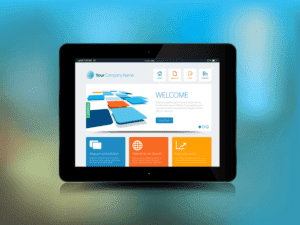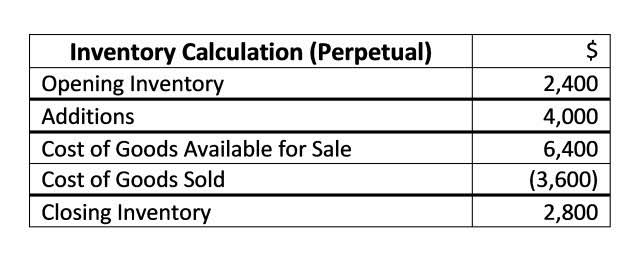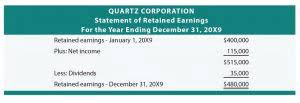He also enjoys writing simple articles to help others understand taxes and stay updated with the latest rules. Blockchain can also eliminate or reduce the work of maintaining financial records and verification before settlement. When an order is reflected in your ledger, it triggers immediate payment, so you don’t have to spend time collecting. Read how transaction auto-categorization helps you understand your finances better Accounts Payable Management and how Fincent is using AI to improve the process.
- With cloud-based accounting, businesses can automate processes, improve accuracy, and access financial data in real-time, which is crucial for staying competitive.
- The integration of artificial intelligence and machine learning will enhance data analytics capabilities, allowing companies to gain deeper insights into their financial health and operational efficiency.
- The easy-to-understand interface allows everyone to operate the software and perform necessary tasks.
- Cloud accounting provides businesses with the flexibility to access their financial data anytime, anywhere, while also ensuring the security and integrity of their data.
- Automating these processes can help eliminate errors and improve the accuracy of your financial records.
- Remote servers store data securely, while automated processes minimize errors.
Provide automatic updates
By using cloud accounting software, you can easily track and manage your financial data in real-time, making it easier to generate accurate and up-to-date reports for tax purposes. Cloud accounting software can also facilitate compliance with industry-specific regulations, such as data privacy laws or industry-specific reporting requirements. By utilizing cloud accounting software, businesses can stay up to date with regulatory changes and ensure that their financial data and reporting processes align with legal requirements. These cloud accounting platforms offer a range of features and functionality to meet the unique needs of businesses. Data security is a top priority for businesses, and cloud accounting software offers enhanced security measures to protect sensitive financial information. The technology behind cloud accounting includes data centers, which house the remote servers that store and process the financial data.
Tax Acts
Moreover, transitioning to cloud-based systems enhances data security and disaster recovery capabilities. Cloud providers often implement robust security measures, ensuring that sensitive financial information is protected against breaches. This level of security, coupled with automatic backups, gives businesses peace of mind and allows them to focus on growth rather than worrying about potential data loss. Moreover, cloud accounting platforms often cloud accounting meaning integrate with other tools, further streamlining workflows.
- The decision often hinges on specific needs, budget constraints, and the readiness to adapt to newer technologies.
- Furthermore, the integration of cloud-based solutions with emerging technologies such as artificial intelligence and blockchain is set to redefine the future of accounting.
- Regular backups ensure your information is safe, even if your device is damaged.
- Automation capabilities of cloud accounting also offer significant benefits.
- Generally, cloud accounting software is a cheaper option than the on-premises alternative.
- Startups should look for easy-to-use software with good support and integration.
How Has the Rise of SaaS Transformed Financial Management?
It alleviates the need for businesses to store and manage data, or maintain expensive computer hardware. User adoption is another challenge, as employees may need to Online Accounting learn how to use the new software and adapt to new processes. Providing comprehensive training and ongoing support can help address this challenge and encourage user adoption. Real-time reporting and business intelligence provided by dashboard and reporting apps.
On-premise accounting may still work for highly customized legacy systems, but for most modern finance teams, efficiency and innovation converge in the cloud. In contrast, cloud accounting is hosted off-site on secure servers and accessed through browsers or mobile apps. It offers automatic updates, remote access, and built-in backups, dramatically reducing IT dependency and operational risk. Cloud accounting outperforms on-premise systems in accessibility, automation, and scalability, making it the modern choice for finance teams focused on agility and real-time insights.
What is Cloud Accounting? Benefits and How It Works
Unlike legacy systems, which often require on-premise software and hardware, cloud-based accounting leverages the power of the internet, enabling businesses to manage their finances anytime, anywhere. From small businesses to large enterprises, the shift towards cloud accounting software offers real-time access to data, automation of tedious tasks, and robust security measures. Cloud accounting, also known as online accounting, is a type of accounting software that allows businesses to access and manage their financial data online. With cloud accounting software, businesses can store and analyze their financial information in a secure and centralized location, accessible from any device with an internet connection.
Their team of experts is ready to help you get started schedule a free demo and see how our software can revolutionize your business operations. However, an upgrade to their cloud-based accounting software could include these features, allowing the company to reap the benefits without incurring extra costs. Therefore, it is crucial to choose the most trusted accounting software for businesses in Singapore for accurate reporting and optimal performance. Cloud accounting software can be used from any device with an internet connection, allowing teams to work remotely, collaborate efficiently, and access financial data on the go. With its enhanced data capabilities, Cloud-based Accounting is the perfect solution for businesses that need fast access to financials and key performance indicators. Intuit predicts that 78% of small businesses will rely on cloud technology by 2020.







